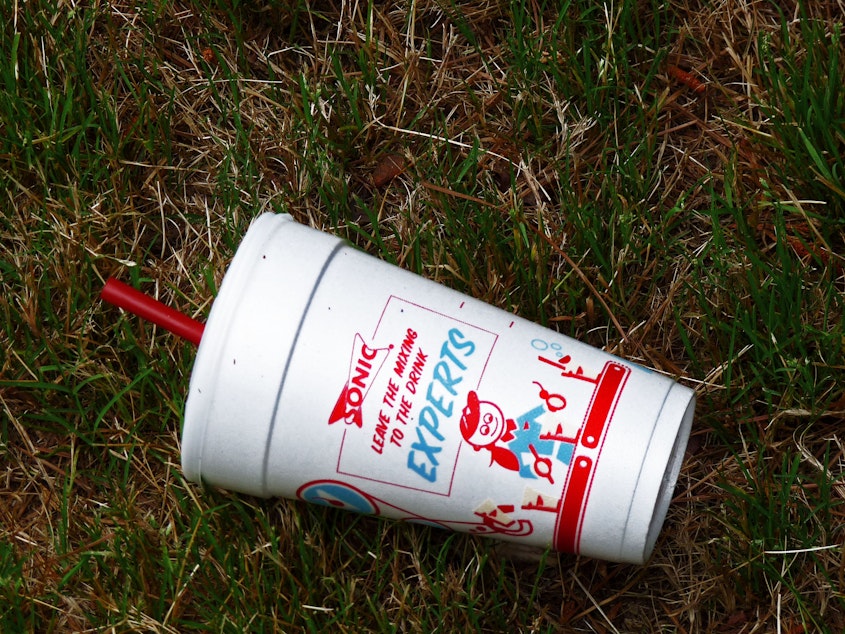Washington state bans polystyrene foam, clamps down on other plastics

The new law, signed Monday by Washington Gov. Jay Inslee, restricts restaurants’ use of disposable plastic items, requires recycled content in some plastic bottles and bags, and bans most uses of polystyrene foam, including cups, clamshell containers, packing peanuts, and coolers.
Supporters call it the nation’s toughest law on plastics.
Washington is the sixth state to ban polystyrene foam items and the first to ban the foam coolers.
Plastic foam egg cartons, trays for raw meat and seafood, and coolers for medical or scientific supplies are still allowed.
“With this bill, Washington regains our leadership on plastic pollution and recycling in the United States,” said Heather Trim with the nonprofit group Zero Waste Washington.
Starting in January, Washington restaurants won’t be allowed to hand out plastic utensils, straws, lids or those little packets of ketchup, salsa, and soy sauce — unless the customer asks for them.
Under the new law, plastic bottles and trash bags have to have some recycled content, starting with 10% for trash bags and 15% for beverage containers in 2023 and increasing from there.
Sponsored
California mandated minimum recycled content requirements for plastic beverage containers last year.
Plastics are a small part of the waste stream in Washington, but they’re a menace to marine life. Over time, they can also degrade into microplastics that have become ubiquitous in the environment.
“The majority of what’s in the garbage cart is organic material like food waste and paper,” said Hans VanDusen with Seattle Public Utilities. “Plastics isn’t a huge amount.”
The plastics industry lobbied unsuccessfully to be allowed to keep making foam products if they contain post-consumer recycled plastic, similar to other types of plastic addressed by the bill.
Washingtonians generate about 23,000 tons of polystyrene foam garbage each year, with just 3% of it getting recycled, according to the Washington Department of Ecology.
Sponsored
“Our company has spent decades and significant resources researching the recyclability of food service packaging products,” Jonathan Choi of Dart Container Corporation testified in April.
The Michigan-based company manufactures cups and other polystyrene foam packaging in Tumwater, a few miles from the Washington state legislature, and employs 47 people in the Olympia area, Choi said.
“Dart is prepared to make this substantial change,” he added.
The Association of Washington Business also opposed the bill, while the Washington Beverage Association supported it. The beverage industry expects the recycled-content requirements will boost recycling rates for the single-use bottles their products come in.
The average Washingtonian throws out 112 pounds of plastic packaging annually, according to the Washington Department of Ecology.
Sponsored
Currently, more than 80 percent of plastic packaging in Washington winds up in the landfill.
Plastics, in the form of cigarette butts and various types of packaging, dominate the trash that volunteers find in annual cleanups of Washington beaches, according to the Ocean Conservancy.
VanDusen with Seattle Public Utilities said what plastic does get recycled in Washington tends to be made into new products here in North America — a shift after many years of recyclables being shipped to China or other Asian countries for processing.
High-value plastics from milk jugs and soda bottles wind up as products like fleece, jackets and carpets, rather than new bottles.
Low-value, mixed plastics from Washington state are shipped north to two plants in British Columbia, where they are turned into resin pellets that can be compressed into automobile parts and other products, according to VanDusen.
Sponsored
The state’s ban on foam containers and packing peanuts kicks in on June 1, 2023.




